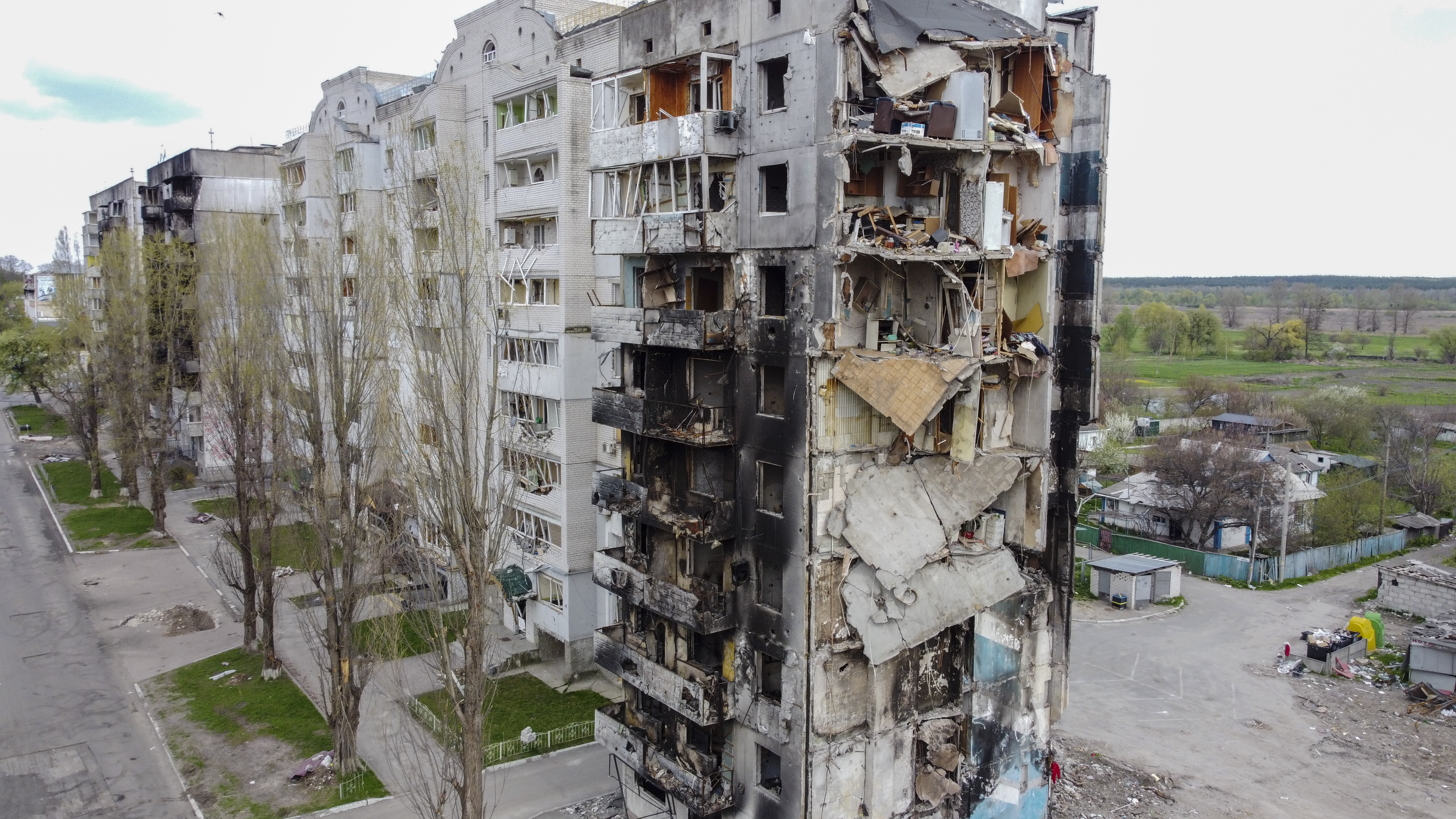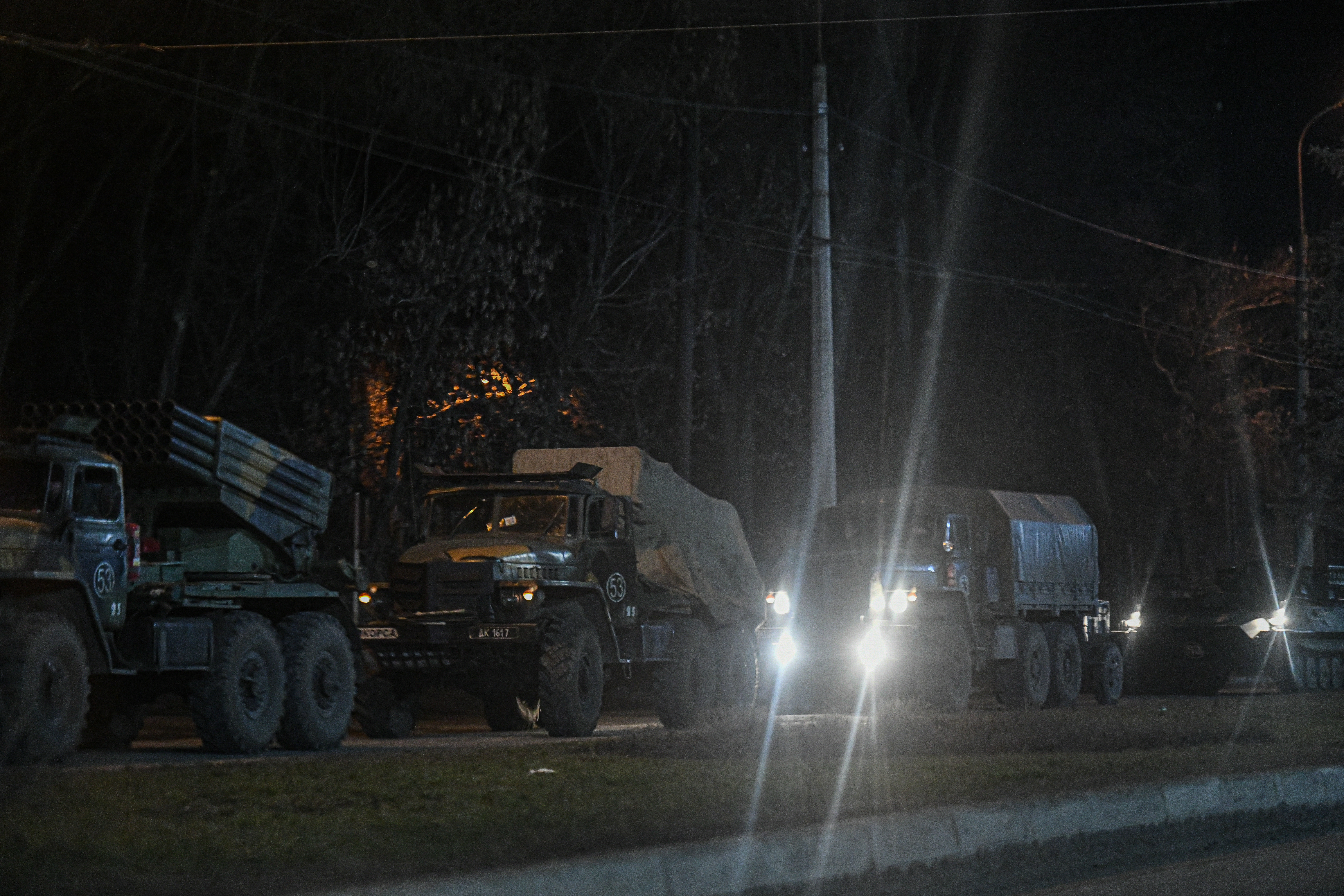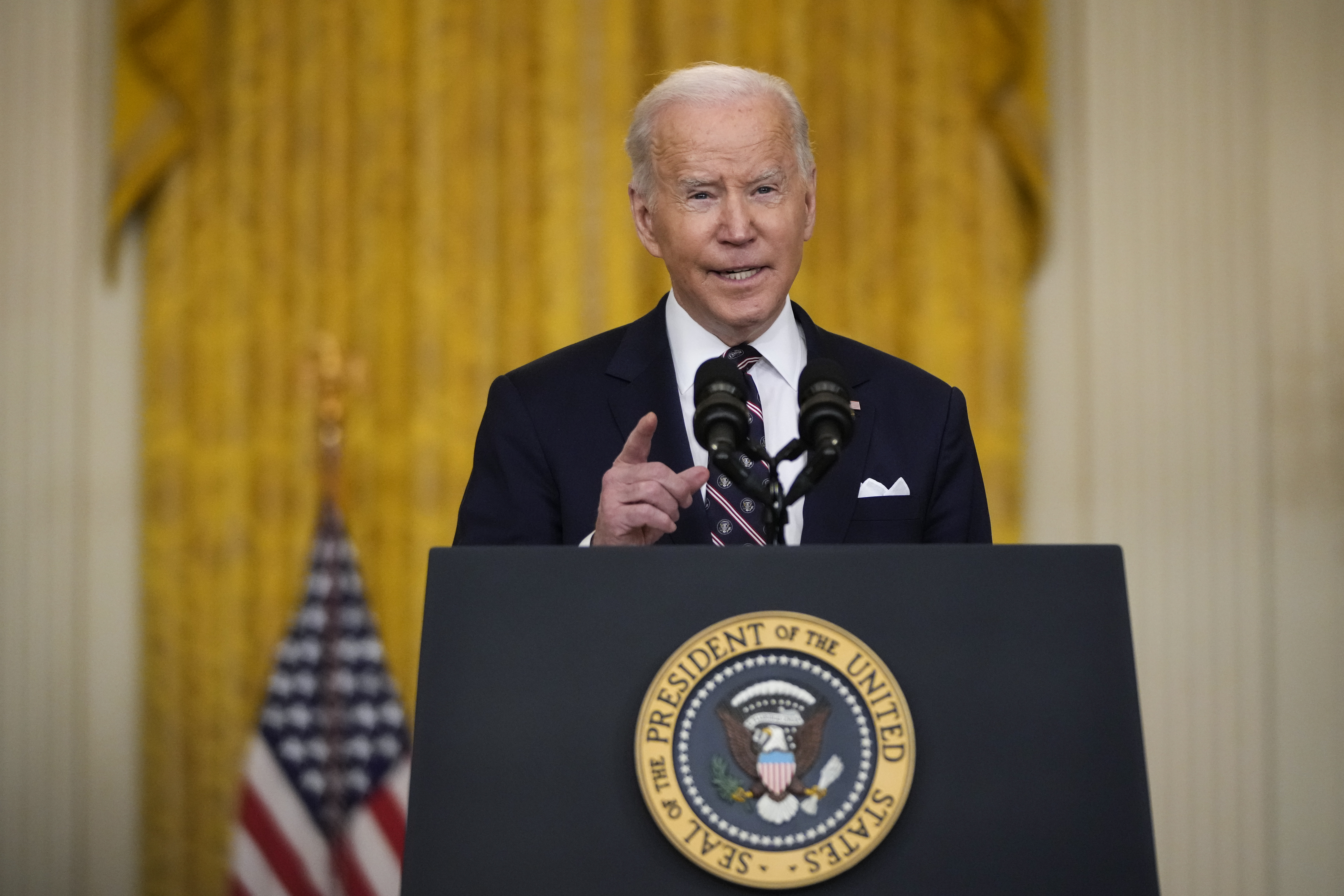The first explosions sounded in Ukraine's cities before dawn Thursday as Russian President Vladimir Putin launched his long-anticipated military operation in Ukraine.
In a televised address as the attack began, Putin warned other countries that any attempt to interfere would “lead to consequences you have never seen in history.”
U.S. President Joe Biden declared that the world will “hold Russia accountable." NATO Secretary-General Jens Stoltenberg condemned Russia's action as a violation of international law and a threat to European security.
Ukraine's foreign ministry said Russia's intent was to destroy the state of Ukraine, a Westward-looking democracy intent on moving out of Moscow's orbit.
More Russia-Ukraine Coverage
Here are the things to know about the conflict over Ukraine and the security crisis in Eastern Europe:
Get Tri-state area news delivered to your inbox. Sign up for NBC New York's News Headlines newsletter.
Putin Makes His Move
Putin said the military operation was needed to protect civilians in eastern Ukraine — a claim the U.S. had predicted he would falsely make to justify an invasion.
Putin accused the U.S. and its allies of ignoring Russia’s demands to block Ukraine from ever joining NATO and offer Moscow security guarantees.
Putin said Russia does not intend to occupy Ukraine but will “demilitarize” it. Soon after his address, explosions were heard in the cities of Kyiv, Kharkiv and Odesa. Russia said it was attacking military targets.
He urged Ukrainian servicemen to “immediately put down arms and go home.”
Ukraine’s border guard agency said the Russian military has attacked from neighboring Belarus, unleashing a barrage of artillery. The agency said Ukrainian border guards fired back, adding that there was no immediate report of casualties. Russian troops have been in Belarus for military drills.
The West Reacts Quickly
Biden and Stoltenberg quickly condemned Russia's attack as unprovoked and unjustified.
Putin “has chosen a premeditated war that will bring a catastrophic loss of life and human suffering,” Biden said in a statement.
Biden promised united and decisive responses by the United States and its allies. “The world will hold Russia accountable,” he said.
"Despite our repeated warnings and tireless efforts to engage in diplomacy, Russia has chosen the path of aggression against a sovereign and independent country,'' the NATO leader said.
Ukraine's President Urges Calm
Residents of Ukraine's capital, Kyiv, could be heard shouting in the streets when the first explosions sounded. But some kind of normalcy quickly returned, with cars circulating in the streets in the early morning commute.
President Volodymyr Zelenskyy issued a video statement declaring martial law. He told Ukrainians that the United States was gathering international support to respond to Russia. He urged residents to stay calm and remain home.
World Markets Fall
Asian stock markets plunged and oil prices surged after Putin announced Russian military action in Ukraine.
Market benchmarks in Tokyo and Seoul fell 2% and Hong Kong and Sydney lost more than 3%. Oil prices jumped nearly $3 per barrel on unease about possible disruption of Russian supplies.
Putin's Declaration Overtakes Emergency U.N. Security Council Session
At an emergency meeting of the U.N. Security Council called by Ukraine because of the imminent threat of a Russian invasion.
In opening the meeting just before Putin's announcement, U.N. Secretary-General Antonio Guterres told Putin: “Stop your troops from attacking Ukraine. Give peace a chance. Too many people have already died.”
Guterres later pleaded with Putin, “In the name of humanity, bring your troops back to Russia.”
When Will the West Impose More Sanctions?
Ukraine's forces are no match for Moscow's military might, so Kyiv is counting on other countries to hit Russia hard — with sanctions.
Biden on Wednesday allowed sanctions to move forward against the company that built the Russia-to-Germany Nord Stream 2 gas pipeline and against the company’s CEO.
Biden waived sanctions last year when the project was almost completed, in return for an agreement from Germany to take action against Russia if it used gas as a weapon or attacked Ukraine. Germany said Tuesday it was indefinitely suspending the pipeline.
He said more sanctions would be announced on Thursday.
Ukraine's Western supporters said they had already sent out a strong message with a first batch of sanctions on Tuesday.
“This is the toughest sanctions regime we’ve ever put in place against Russia,” British Foreign Secretary Liz Truss said Wednesday of measures that target banks that fund the Russian military and oligarchs. "But it will go further, if we see a full-scale invasion of Ukraine.”
The European Union finalized a similar package, which also targets legislators in the lower house of Russia's parliament and makes it tougher for Moscow to get on EU financial and capital markets.
U.S. actions announced Tuesday target high-ranking Russian officials and two Russian banks considered especially close to the Kremlin and Russia’s military, with more than $80 billion in assets.
What Sanctions Were Under U.S. Consideration If Russia Invaded?
The Biden administration had made clear it was holding tough financial penalties in reserve in case of just such a Russian invasion.
The U.S. hasn't specified just what measures it will take now, although administration officials have made clear that all-out sanctions against Russia's major banks are among the likely options. So are export limits that would deny Russia U.S. high tech for its industries and military.
Another tough measure under consideration would effectively shut Russia out of much of the global financial system.
How Is Ukraine's Economy Holding Up?
It was Ukraine, not Russia, where the economy was eroding the fastest under the threat of war.
One by one, embassies and international offices in Kyiv closed. Flight after flight was canceled when insurance companies balked at covering planes arriving in Ukraine. Hundreds of millions of dollars in investment dried up within weeks.
The squeezing of Ukraine’s economy is a key destabilizing tactic in what the government describes as “hybrid warfare” intended to eat away at the country from within.
The economic woes include restaurants that dare not keep more than a few days of food on hand, stalled plans for a hydrogen production plant that could help wean Europe off Russian gas and uncertain conditions for shipping in the Black Sea, where container ships must carefully edge their way around Russian military vessels.
Ukraine Sees More Cyberattacks
The websites of Ukraine’s defense, foreign and interior ministries were unreachable or painfully slow to load Thursday morning after a punishing wave of distributed-denial-of-service attacks as Russia struck at its neighbor.
In addition to DDoS attacks on Wednesday, cybersecurity researchers said unidentified attackers had infected hundreds of computers with destructive malware, some in neighboring Latvia and Lithuania.
Officials have long expected cyberattacks to precede and accompany any Russian military incursion.
How Was the Confrontation Seen in Russia?
In the buildup to the attack, Russian state media portrayed Moscow as coming to the rescue of war-torn areas of eastern Ukraine where residents were tormented by Ukraine’s aggression.
“You paid with your blood for these eight years of torment and anticipation,” anchor Olga Skabeyeva said during a popular political talk show Tuesday morning. “Russia will now be defending Donbas.”
Channel One struck a more festive tone, with its correspondent in Donetsk asserting that local residents “say it is the best news over the past years of war.”
“Now they have confidence in the future and that the years-long war will finally come to an end,” she said.
Whether ordinary Russians were buying it is another question.
Associated Press writers around the world contributed to this report.




